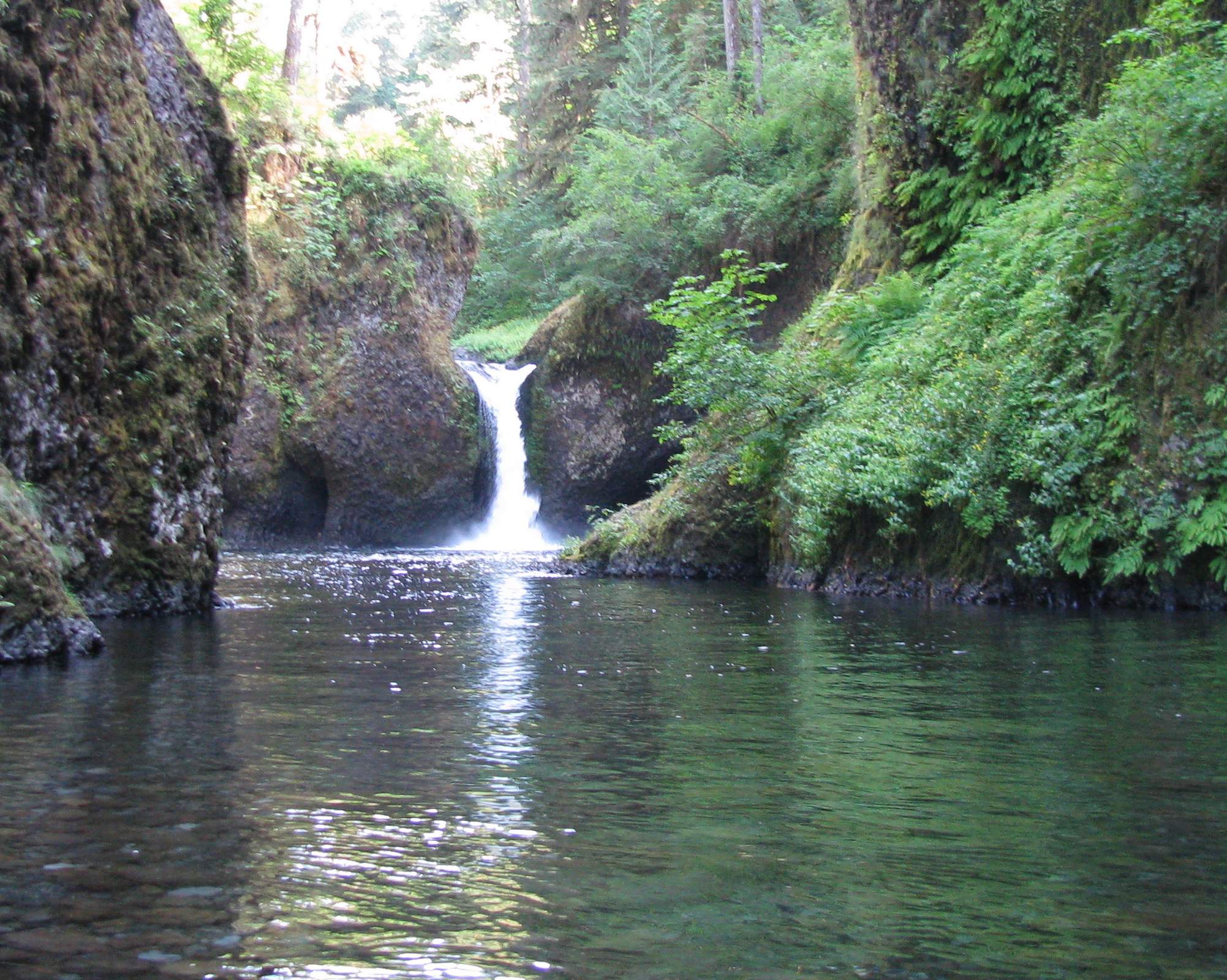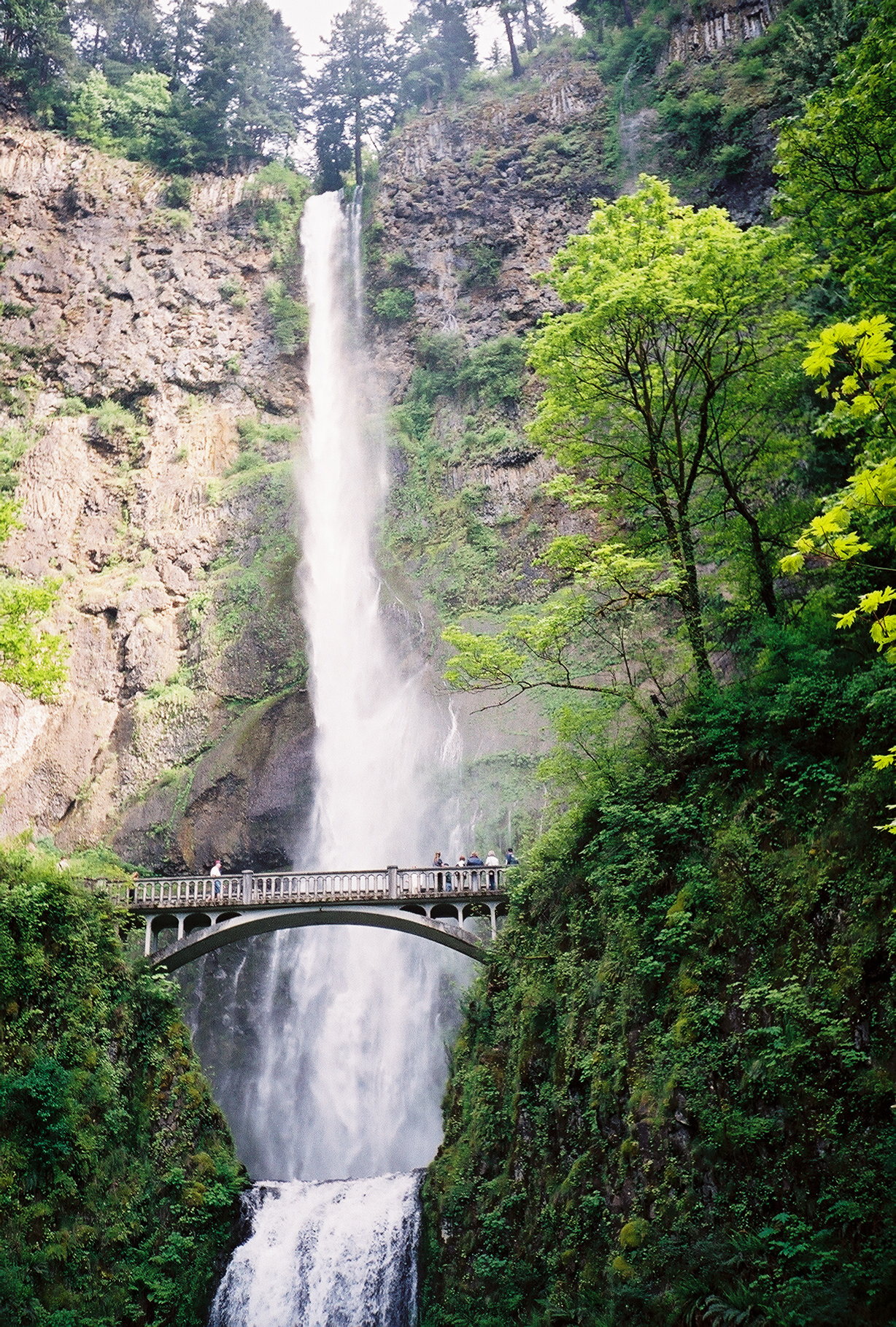
I have traveled all across America and to 18 countries in Europe. My wife, who was born and raised in Poland, agrees with me: The Pacific Northwest is the most beautiful part of the world*.
Come visit in the summertime, when the weather is almost certain to be sunny and in the 70s. (We pay for this natural beauty with rain the other nine months of the year.) In Seattle, on a clear day, you can see the Olympic Mountains to the west and the Cascade Mountains to the east. To the southeast is the glorious Mt. Rainier, which towers over the region at a breathtaking 14,411 feet. Because most trees in this neck of the woods are evergreen, the Pacific Northwest is beautiful all year round.
 Within a short drive of just about anywhere, you can go hiking, boating, skiing, or visit the beach. (Granted, our beaches aren't the sort where you go sunbathing or swimming.) Hiking may be the most popular pastime, given the sheer number of opportunities that exist.
Within a short drive of just about anywhere, you can go hiking, boating, skiing, or visit the beach. (Granted, our beaches aren't the sort where you go sunbathing or swimming.) Hiking may be the most popular pastime, given the sheer number of opportunities that exist.
One of the crown jewels of the Pacific Northwest is a hike along Eagle Creek, situated on the Oregon side of the Columbia River Gorge. A popular destination on the trail, particularly when it's hot, is Punch Bowl Falls. (My photo is on the left. Far better photos than mine are here and here.)
Just down the road, literally along Interstate 84, is Multnomah Falls, a 620-foot waterfall. (Once again, my photograph (taken in 2001 with a non-digital camera!) is below right. Better pictures are here, here, and here, but I still think mine is pretty good.)

Unfortunately, both of these incredible natural wonders are in serious danger. The area surrounding Punch Bowl Falls almost certainly has been destroyed, and the area around Multnomah Falls is facing the same fate.
Why? Because of acts of pure stupidity, thoughtlessness, and recklessness.
The Banality of Evil
According to Willamette Week, an eye witness recalls watching teenagers giggle and toss fireworks into the forest. She scolded them, but it was too late. The act was done. A fire had already started.
The fire, covering 10,000 acres and growing, has spread into the State of Washington. Towns are being evacuated, schools are closed, and ash is falling like snow in Portland. People with conditions like asthma are facing a serious health threat.
Worse, 153 hikers were stranded on the Eagle Creek trail because of the blaze. Thankfully, all of them have safely made their way out after being forced to camp overnight.
All of this was entirely preventable. And all of this was entirely foreseeable; even teenagers understand the consequences of their actions. But they just didn't care. They didn't care that a forest fire could not only destroy a true natural treasure, but that it could threaten the lives of thousands of people and cause millions of dollars in damage. They are very lucky that nobody has been killed (at least not yet).
How could somebody commit such a reckless, destructive act without the least consideration for how it might impact other people? That question has been mulled over by social psychologists, especially since the Holocaust. Hannah Arendt, an author who reported on the trial of Adolf Eichmann, coined the term the "banality of evil" to describe the indifference and stupidity that allowed everyday Germans to participate in the most heinous act of human history.
Obviously, causing a forest fire -- intentionally or otherwise -- is in no way morally equivalent to genocide. But the negligence and complete lack of empathy exhibited by the teenagers is nonetheless chilling.
When the eyewitness informed the teenagers that they had just started a fire, one of them responded nonchalantly, "Well, what are we supposed to do about it now?" She concluded, "I felt like I was in a nightmare because these kids were not reacting the way I felt normal people would react."
On the contrary, their reaction was all too normal. We could call it banal.
*Note: The only country we have seen that rivals the Pacific Northwest is Slovenia. Yes, we knew about Slovenia before Melania Trump became a household name.



